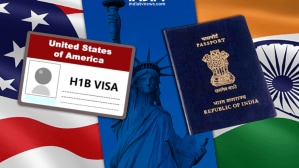By Ujjwal Kumar
Recently the Indian government had issued a set of draft amendments to the Patents Rules, 2003, for public comments. Among others, it proposes to amend the rules with respect to ‘pre-grant opposition’ of patents i.e., opposing claims in any patent application before a patent is granted by the patent authority.
The parent Act i.e., the Patents Act, 1970, allows ‘any person’ to file a pre-grant opposition on certain given grounds. The proposed amendments to the Rules not only intend to introduce ‘maintainability’ requirement to such pre-grant opposition applications, but also leave this to the discretion of the patent authority. This proposal to dilute or qualify the pre-grant opposition framework, which hitherto was largely unfettered, is being opposed strongly by public health advocates.
Legislative intent
The present version of the legal provision on ‘pre-grant opposition’ was incorporated by the Patents (Amendment) Act of 2005, which was brought to make the Indian patent regime fully compatible with the Agreement on Trade-Related Aspects of Intellectual Property Rights (TRIPs) of the World Trade Organisation. Section 25(1) of the Indian Patents Act provides that “where an application for a patent has been published but a patent has not been granted, any person may, in writing, represent by way of opposition to the Controller against the grant of patent…”.
The 2005 patent amendment is hailed as a model for developing countries in incorporating ‘policy space’ or ‘public health safeguards’, which TRIPs provide, into domestic patent law. Vide this amendment, one of the most notable changes made to the pre-grant opposition framework was to make it much broader by allowing ‘any person’ to file opposition, as against much narrower ‘any person interested’ that was the case before 2005. The Act defines ‘person interested’ as a person engaged in or promoting research in the same field as that to which the invention in the patent claim relates.
The legislatures’ intent was clearly to make it easy for any person to file a pre-grant opposition on patent claims. This intent can also be gathered from the fact that the original texts of Section 25(1) in the Bill of 2005 as introduced in the Parliament, contained a qualification or proviso. According to it, ‘any person’ could have filed an opposition, provided that the “person shall not become a party to the proceedings before the Controller”. This proviso was opposed in the Parliament and hence deleted. Therefore, the intention of the Parliament was that the patent authority shall grant a hearing to the person opposing grant of patent, upon request.
Furthermore, the provision of the ‘post-grant’ opposition (i.e., after the patent has been granted) – introduced for the first time in the Act by the 2005 amendments – only allows ‘person interested’ to apply for such opposition. This fact further firms up legislative intent to leave ‘pre-grant’ opposition unfettered to filed by ‘any person’.
The main intention of the Parliament was that such pre-grant opposition will curtail the grant of frivolous patent and prevent ‘evergreening’ attempts, thus promoting generic competition in the pharmaceutical market. Since most citizens are dependent on out-of-pocket healthcare expenditures, such measures will enhance access to drugs in India. The legislative intention was also to reduce the burden of post-grant invalidity proceedings and injunction proceedings, apart from providing definite timelines from filing to the disposal of opposition proceedings.
The judicial pronouncements in India had also favoured the view that the patent authority must hear every person, including advocacy and patient groups, who filed a pre-grant opposition. Therefore, any dilution of the pre-grant provision via executive’s rule-making power may go against the legislative intent or judicial pronouncements.
Importance of Patient and Public Health Advocacy Groups
Even though ‘any person’ can file pre-grant opposition, it is not an easy task as the same requires a very high level of techno-legal expertise. Fortunately, a strong civil society movement in India related to IP-Health issues, ever since the TRIPs was introduced in the WTO acquis, has helped constitute a battery of organisations, including patient groups, and a few trained pro-bono lawyers that have expertise to successfully use this important public health safeguard.
The latest example is the rejection of a secondary patent claim over bedaquiline – an essential drug used to treat multi-drug resistant TB – by the Indian patent authority in March 2023 acting upon pre-grant opposition filed by two TB survivors. This move defeated an evergreening effort on bedaquiline patent, which expired in July 2023, hence paving way for cost-effective generic versions.
In fact, just after the 2005 patent amendments, a cancer patient group had filed the first pre-grant opposition before the Indian Patent Office against pending patent claim on imatinib mesylate (Gleevec) – a lifesaving cancer drug. They successfully defeated the ‘evergreening’ effort based on the stricter patentability criteria, which was also introduced by the same 2005 amendments. The rejection was upheld by the Supreme Court, including upholding the constitutionality of the novel stricter patentability criteria provided under the Indian Patents Act.
There have been several other cases where patient and advocacy groups have successfully used the pre-grant opposition provision, which in turn enhanced access to many of essential drugs and benefited millions of Indians. Most importantly, such pre-grant oppositions have aided the patent authority in addressing the issue of low-quality of patents, including the evergreening efforts. There are reports that the authority not only have been discouraging such advocacy groups in filing pre-grant opposition, but have themselves been deficient in filtering patent applications from the perspective of anti-evergreening provisions of the Act, such as sections 3(d) or 3(e).
The pre-grant opposition provisions coupled with the stricter patentability criteria in the Indian patent law have proved to be a potent public health safeguards, which need to be maintained instead of diluted. Similarly, public health advocates and patient groups need also be encouraged. This is particularly important because the generic drug manufacturers may not like to indulge in patent oppositions because of practical reasons like ruining their present or potential relationship with innovative firms (such as outsource or contract manufacturing). Also, not all patent applications may relate to their drug portfolios.
Therefore, in public health interest it would be wise to shelve the proposed amendments to the Patent Rules, 2003, particularly those related with the ‘maintainability’ of pre-grant opposition and introduction of a fee structure for ‘any person’ filing the same.
(The author is a Former National Consultant (Trade & Health), Ministry of Health & Family Welfare, and is presently working with policy think tank CUTS International. Views expressed are personal and do not reflect the official position or policy of the FinancialExpress.com.)









